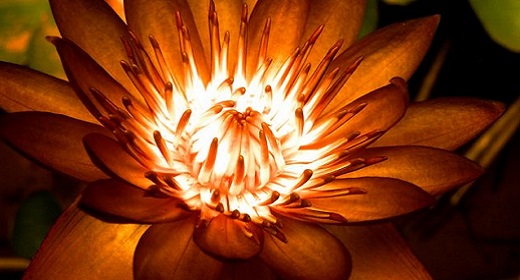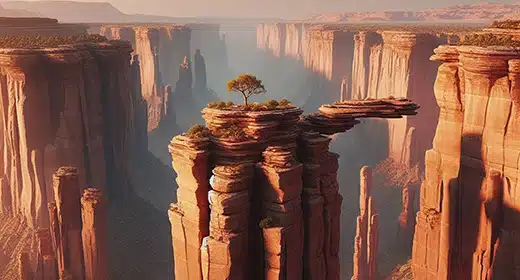If the words “off-the-grid” conjure up the image of some remote wilderness wildlife trapper with a long, unkempt beard….

well, you’re a little behind the times. Today, everyone is talking about going off the grid, of getting out of the modern rat-race and reclaiming an older and better way of life. But still, what does going off the grid even mean?
What Off the Grid Living is not
People often use off-the-grid to mean self-sufficient, but the two terms aren’t necessarily the same thing. Off the grid can be and often is self-contained, but it isn’t an absolute requirement.
Nor is off-the-grid the same as sustainable living. That can be done on the grid as well as off. If your goal is to be 100% sustainable and green in your lifestyle, you may be able to do that in the centre of town! In some places, it might be a lot easier to live sustainably in town than in the country.
What Off the Grid Living actually is
The “grid” is the electric grid, the network of power lines, poles, cables and transformers that link every building with electricity. At its most basic, going off the grid simply means to cut your connection with the electric grid. That may mean you go without electricity entirely – or you might want to generate your own.
More broadly, off-the-grid also refers to water and waste processing as well. A truly off-the-grid home isn’t linked to municipal water supplies, city waste treatments, or electricity sources. It may have water, plumbing, and electric; an off-the-grid house can be quite comfortable! But it won’t be connected in any way to the broader grid.
Now you know a bit more about what off-the-grid means. The definition is fairly broad, and you might think, hey, there a lot more in that category than I thought! You’re not wrong. Camping could be considered off-the-grid living – just a temporary version. Backpacking might fit the bill as well, or even caravaning. And of course, a remote mountain cabin or bothy is technically off the grid as well.
Choose your own adventure: Thoughts and plans for your off-the-grid experience
It’s been building up for a while, but you’re finally at the tipping-point. You’ve decided to ditch the rat race of the modern world, the endless consumerism of our society, and get back to something a little simpler, a bit more direct. You don’t want to rely on anonymous city infrastructure; you want to feel dirt in your fingernails again.
In other words, you want to go off the grid. But you can’t just grab a bag of supplies and a pocket knife and head into the wilderness – at least, not without a lot of training and experience! You’ll need to gather supplies and plan for the details. This article will help you hash out some of those details, and take you through everything you need to consider before you go off-grid – the challenges you’ll face, and some options to overcome them.
Is off-the-grid right for me?
Why, why, why? What is driving you to consider going off the grid? The answers to that question will determine which challenges you’ll face in your off-the-grid experience. Consider these other questions also:
- What do you want to achieve?
Are you fed up with modern civilisation, and are looking to go off-the-grid to get away from it all? Are you stressed-out, and need a place to reclaim yourself? Perhaps you feel your connection to nature fading, and want to recharge by living a life bound only by natural rhythms – sunrise, sunset, the four seasons. Or maybe you even have a specific purpose for your off-the-grid adventure: you want to write a book, or meditate, or pursue an artistic endeavor uninterrupted. Whatever your reason, it’s not enough to just react wildly and plunge off the grid at random. Think about why you want to go off the grid. Then move to the next question.
- How long do you want to say off-the-grid?
Some of the above reasons aren’t necessarily long-term. If you just want to get away to finish your novel uninterrupted, you may only need to go for a couple of months, or even a few days. If you want to recreate the whole homesteading experience, you’ll obviously be preparing for something much more long-term: years, or even decades. Think about what you’re trying to achieve by going off the grid, then let that shape your timescale.
- What is your budget?
Budget may also affect things. Homesteading, going completely off-the-grid and building your own house, energy supply, septic, and the whole nine yards, is not necessarily a cheap experience. That’s not to say it’s prohibitively expensive, but you need to consider what you want to do and how you can afford to do it. Maybe you need a nice, long, off-the-grid adventure of a more temporary sort first – an overland trek, a long hike, even a retreat into the wilderness – before you jump into preparing to sell everything and live off the land.
“An ounce of preparation is worth a pound of cure”
If you’ve answered the previous questions, you’re now in much better shape to decide how to proceed. There are more details to consider before you ever take your first step, though.
- Know the rules and regulations
Living off the grid exists in a bit of a grey area, legally. You’ll need to check with local rules and regulations to make sure that you can live unconnected to the grid. This is especially true if you want to live off the grid permanently. There are rules and safety legislation for septic tanks, power generation, and building codes. You may not need to follow all the rules of a new house in the middle of town, but you might be surprised at how many ordinances you’ll still need to comply with.
- Plan the parameters
Finalise your answers to all those earlier questions. For the purpose of this article, we’ll assume you’ve decided to go off-the-grid more or less permanently – building a house of some sort, and aiming for basic self-sufficient infrastructure.
- Do your research!
With all that prep work done, you’ve really only just begun to get everything in order for your adventure. In addition to rules and regulations, you’ll need to research everything from building techniques to methods of food preservation. There’s a LOT of study to be done – the test will be in the real-world application of what you learn.
“I love it when a plan comes together:” Getting started
In this section we’re going to look at what you’ll need to do to live off-grid right away, what you will need long-term, and finally how you can live off-the-grid without sacrificing any modern conveniences.
You can also think of these as three distinct styles of off-the-grid living, from super-basic or survivalist to a lifestyle that is very modern but self-sufficient.
Basic needs
- Location
Where do you want your off-the-grid home to be? Are you looking for a dream location, with land for your homestead, where you’ll settle down and never leave? Or are you wanting an off-the-grid getaway? Either case will influence where you put your off-the-grid home. You’ll probably want to purchase the land, which will give you the freedom to build all your own infrastructure.
- Shelter
You can’t live anywhere for very long without a shelter of some kind. Whether you’re roughing it in the wilderness, or have just started a homestead on your own property, you’ll need to get something built in which to live. The exact form is up to you, but there are a number of considerations.
- Cost – how much money do you have to work with?
- Permanence – how long-lasting do you want the structure to be?
- Comfort – what are you willing to live in?
People have constructed off-the-grid homes out of old sheds and ramshackle barns; they’ve lived in broken-down buses. All of those options might work for the short-term, if you’re going to build something more permanent. You might also consider an in-place caravan, if you’re going off the grid for a few weeks or months at a time.
When it comes to more permanent structures, the sky’s the limit. Some people hire contractors to build a complete new home, with all the modern conveniences, and then arrange for their own power and water supplies. Others plan out a simpler home, and buy or salvage materials from scrapyards and construction sites to build their dream off-the-grid home themselves.
- Water
One of the biggest challenges you’ll face in your off-the-grid home is finding a source of fresh drinking water. Some options to consider:
- Rainwater
This is one of the simplest ways to collect fresh water, and has the added benefit of incorporating your building. Arrange barrels or a storage tank, or if this is going to be a long-term solution, consider installing an underground bladder. Remember that rainwater has some weaknesses, the biggest being that it can be intermittent or seasonal, leaving you without a water source for part of the year, or dependent on an alternate system.
- Stream or lake
Using a nearby natural water source like a stream or lake offers some advantages. You could find a way to combine water collection with power generation, and rely on hydro power for your energy. However, like rainwater, all but the biggest streams can be seasonal, and even lake levels can rise and fall.
- Well
The most permanent solution for an off-the-grid water supply is to dig your own well. That’s not always an easy task; you may have to sink down pretty far before you’ve reached a steady supply – depths of a thousand feet or more in drier climates, which can add to the expense considerably. But once set up, you should have a water source that is sufficient and reliable.
- Waste
Another significant challenge is what to do with the waste you’ll produce. If untreated entirely, you’ll quickly create a major health hazard in your new home, and might render much of your property uninhabitable. Fortunately, there are some time-honored techniques for dealing with human waste which you can incorporate.
Enter your text here…
- Burial method
By far the simplest method is to dig a small hole, do your business, and bury it afterwards. It hides the waste, and removes much of the risk. But this only works best for very short periods of time; temporary camps, rather than permanent habitations.
- Latrine pit
An expansion of the burial method is to construct a latrine pit, used for a longer length of time before being buried. For short- to mid-term residences, a pit toilet can handle your waste. However, if you’re settling in to a homestead, you’ll probably want something more permanent than a series of latrines.
- Full septic system
For most permanent residences, you’ll want a septic system. Once installed, these can be independent of any grid, capable of handling all the waste your home produces.
Long-term considerations
These challenges are the ones faced by people planning to live off-the-grid long-term, in homesteads or something similar. These are not new challenges. Humanity has faced these same problems since the beginning. As a modern off-grid resident, you have more options than ever to face these problems.
- Food sources
As we’ve mentioned before, you can be off-the-grid and still buy most or all of your food. But many people who go off the grid also aim to be self-sufficient, at least partially. If you’re homesteading, you’ll be looking into farming methods, raising livestock, and perhaps foraging from the surrounding countryside. Nor is gathering food your only concern: you’ll need to consider storage as well. Depending on the reliability of your power source, you might want to consider alternative refrigeration methods, such as a cold cellar.
- Full water use
If you began with a basic cistern for rainwater, you may want to start looking into an upgrade. If rainwater is a reliable source, consider adding an underground storage system. If you’ve installed a well with an electric pump to run off your power supply, you may want to also install a manual pump on the same well, giving you a reliable backup.
- Power
This is the single biggest consideration for most people living off the grid. How are you going to generate your electricity? There are at least five possibilities.
- One – you don’t. You live off the grid and old-fashioned, sticking with firelight as your only artificial light source.
- Two – wind power. Harnessing the wind has been a well-known technique for centuries, but it does come with some problems; first and foremost, it works best in the places with a nearly-constant, steady wind. In some areas, wind power is terribly unreliable, or at best inconsistent. It might be acceptable as a backup system, but can’t be relied upon to generate all the power you’ll need.
- Three – hydro power. Small-scale hydroelectric generators are becoming more efficient and more common, but are obviously best suited to rural areas that stay relatively wet most of the year.
- Fourth – solar power. By far and away the most popular choice, solar power brings some huge benefits. The sun shines everywhere, leaving no area completely unsuited for solar power. And the technology behind the photovoltaic cells which underlie the panels has improved dramatically, with everything from independent solar panels to photovoltaic roof shingles now an option. Solar panels tend to last a long time and be fairly resistant to damage, making them an attractive option because of the reduced maintenance costs. The biggest drawback with solar energy is the storage system – you need a way to harvest and store energy during the day to use at night. Fortunately, there are ways to do this with new and improved battery systems.
- Fifth – use a petrol generator. Most people keep a generator around as a backup, but they burn normal petrol – making them a fairly expensive and labor-intensive option.
Whatever the method chosen, you’ll need to deal with the power storage issue. Usually this can be handled through a battery system, plus a power inverter to render the electricity safe for use in your appliances.
Off-the-grid, but not without luxury
Off-the-grid doesn’t mean going back to a Stone-Age level of technology. With the right planning and preparation, you can keep all the conveniences of your modern life while off the grid.
- Internet
There are a surprising number of options for internet in remote or hard-to-reach locations, but probably the most common choice is satellite internet. It does tend to be more expensive than other forms of internet, but (weather permitting) can give you high-speed internet from almost anywhere.
Getting an internet connection through the normal hard wired means is probably going to be difficult. Today there are plenty of options that are just as quick as, and in some cases even quicker than, more traditional wired connections.
Mobile phone hotspot – probably the simplest and cheapest options, you’ll want to use network coverage detectors to figure out which mobile networks have the best signal where you’re going to be, then find the best contract you can for the most amount of data that you think you’ll need.
Mobile router – long a staple of the caravaning crowd, a mobile router provides an upgrade to using your mobile phone, but works on the same principle. If your off-the-grid home falls in range of a cell tower, a mobile router can give you a strong internet connection. Be sure to shop around for the best deals and coverage; make sure that your home will have signal from the provider you want!
Satellite internet – for the most remote locations, satellite internet may be the only real option. A connection can be made from almost anywhere in the world, with strong connections and fast speeds. Downsides do exist: these tend to be more expensive options than the others mentioned, and weather can interfere with the connection.
- Money
Living off-the-grid doesn’t mean that you have to become a subsistence farmer. Many people choose to go off the grid in a location far enough away to be remote, but still close enough to commute into town. Others opt to splurge on the satellite internet and work from home. The point is, you don’t have to cut yourself off from everything to go off the grid.
Maintaining a ‘regular’ job is 100% possible when living off-grid. In a lot of cases though making the move to off-grid also means you might want to slow down with your work life. If that is the case then considering other options apart from the 9-5 grind might be worth considering, including these options that are popular with off-gridders:
Going freelance or consultant – if you are able to specialise going fully freelance or working as a consultant is often a good way to create a more flexible work schedule.
Casual / seasonal work – the move to off-grid often comes with some big savings, so you if you are able to work less, seasonal work is a great option.
Blogging / social media – chronicling the entire off-the-grid process can be personally and professionally rewarding, and might even help to pay the bills if you do it right.
Other off-grid considerations
- Expense
Building a complete homesteading setup can be expensive, but there are a number of ways to cut down on those expenses. You can look for recycled building materials, or even purchase a large lot of land and subdivide it – selling the extra lots for funds to build your home. That’s the approach this lady took. If you’re aiming for a more survivalist setup, that can be done much more cheaply.
- Safety/Legality
Living off the grid is no more inherently dangerous than living in any other rural location, with a couple of notable exceptions. If you’re doing a survivalist, bare-minimum off-the-grid camp in a remote wilderness location, there’s likely to be an increased risk from exposure, wild animals, disease, etc. If you’re doing a fully-modern homestead, you’re probably not running any unusual risks other than the normal construction dangers, etc.
The question of legality is a bit trickier. Living off the grid is perfectly legal in principle, and all of the elements in an off-the-grid home are legal in isolation (camping, building a house, installing a septic system, using solar/hydro/wind power, etc). However, there are numerous local and national laws which affect each one of those elements; if you pay attention to the rules closely, you could end up transgressing the law and therefore having an illegal off-the-grid home.
















































